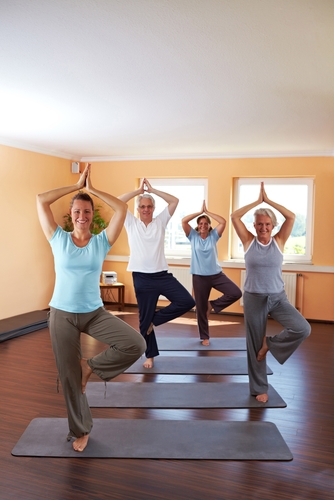Preventing falls among seniors

Many people find that they lose some of their strength and balance as they get older, which can result in falls and injury. Unfortunately, falling is all too common. According to the Centers for Disease Control and Prevention, one in three seniors older than 65 is treated in the emergency room for a fall-related injury. The risk of falling becomes higher with each decade, and the health risks associated with falls can be serious. However, falling doesn't have to be a part of normal aging, and many seniors can prevent themselves from falling with a little work and by forming good habits.
Here are a few things seniors can do to reduce falls:
- Exercise: Weak muscles can greatly increase the risk of falling, but having strong leg muscles can improve balance. Seniors should try exercises that are strength building, such as yoga or Tai Chi, which can boost blood flow, as well.
- Wear shoes: Going barefoot or wearing slippers inside can actually be riskier than wearing shoes that grip the floor. Seniors who wear shoes at all times can lower their risk of injury.
- Monitor medications: Prescription medications with side effects like dizziness or drowsiness can play a part in increasing falling risk. To find out what medications may have adverse effects, seniors should speak with their doctor to review all medications they take.
- Check vision: Poor vision can attribute to falls when seniors bump into furniture or other items in their home. Getting a regular eye checkup can help keep vision sharp and ensure seniors are up to date with their eyeglass prescription.
Home hazards
In some cases, seniors more prone to falls because of potential hazards in their home, where about half of all falls happen, according to the CDC. Clutter and disorganization can make it easier to trip on something and fall, which is why all items that could be an obstacle in areas where people walk should be cleared up, including the stairs. Seniors may also benefit from handrails along staircases and hallways, and all rooms and hallways should have proper lighting.
If there are small rugs throughout the home, they need to be secured so they don't slip, or they should be removed completely. In bathrooms, it can be beneficial to add non-slip covers in bathtubs and showers for safety. Also in the bathroom, handrails can help seniors with their balance. These grab rails should be placed next to the toilet and inside and outside of the shower or bathtub.
To maximize your Senior Health Insurance benefits, visit MySeniorHealthPlan.com for quick, simple and easy information

